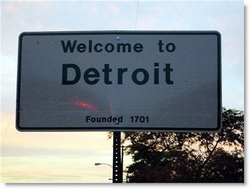
I’m frequently asked why Utah leads the nation in bankruptcy. I am not sure where this notion comes from, but it may be helpful to address these bankruptcy statistics.
Firstly, Utah does not lead the nation in bankruptcies. From September, 2011 through September 2012, 16,545 bankruptcies were filed in Utah. http://www.uscourts.gov/uscourts/Statistics/BankruptcyStatistics/BankruptcyFilings/2012/0912_f2.pdf Compare that to California where over 200,000 bankruptcies were filed over that same period. So clearly Utah does not lead the nation in bankruptcy filings.
But what about bankruptcies per capita? Again Utah is a far cry from leading the nation. Utah, California, and Colorado all had fairly close percentage of bankruptcies per capita with about .5% of the population filing for bankruptcies between September, 2011 and September, 2012. Compare that with Nevada where .7% of the population filed for bankruptcy over that same period. In fact, if you were to look at all the states, you would find that Utah is fairly average in terms of the percentage of bankruptcies filed per capita. Some states are higher, but most are right around Utah's percentage.
Now more to the point – I get the feeling that those people who deride Utah bankruptcy numbers do so because they stigmatize those individuals who have turned to bankruptcy as a means of escape from mounting financial pressure. I get asked often : “Is it ethical do go bankrupt?” I will visit this in a separate post, but it is sufficient for me to say that bankruptcy is strong medicine and not for everyone. However, filing for bankruptcy is a necessity for some individuals and is a legal (and yes ethical) way to get on a road to financial health.
Firstly, Utah does not lead the nation in bankruptcies. From September, 2011 through September 2012, 16,545 bankruptcies were filed in Utah. http://www.uscourts.gov/uscourts/Statistics/BankruptcyStatistics/BankruptcyFilings/2012/0912_f2.pdf Compare that to California where over 200,000 bankruptcies were filed over that same period. So clearly Utah does not lead the nation in bankruptcy filings.
But what about bankruptcies per capita? Again Utah is a far cry from leading the nation. Utah, California, and Colorado all had fairly close percentage of bankruptcies per capita with about .5% of the population filing for bankruptcies between September, 2011 and September, 2012. Compare that with Nevada where .7% of the population filed for bankruptcy over that same period. In fact, if you were to look at all the states, you would find that Utah is fairly average in terms of the percentage of bankruptcies filed per capita. Some states are higher, but most are right around Utah's percentage.
Now more to the point – I get the feeling that those people who deride Utah bankruptcy numbers do so because they stigmatize those individuals who have turned to bankruptcy as a means of escape from mounting financial pressure. I get asked often : “Is it ethical do go bankrupt?” I will visit this in a separate post, but it is sufficient for me to say that bankruptcy is strong medicine and not for everyone. However, filing for bankruptcy is a necessity for some individuals and is a legal (and yes ethical) way to get on a road to financial health.


 RSS Feed
RSS Feed